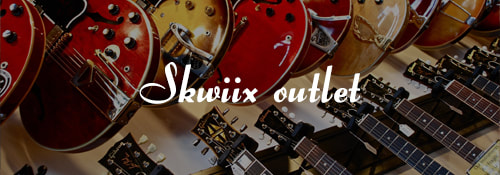Guitar - Buying tips & guidelines
|
therefore picking your first instrument can be difficult; however, the only thing you should focus on is how the guitar feels in your hands.
It would be best to start by deciding which guitar you wish to play - acoustic, bass or electric. You then narrow your options by choosing the features that suit the musical style(s) and genre(s) you want to play. |
You should also have a budget, therefore, a price range of affordability in mind before visiting a music shop or browsing online to review the instruments. The recommendation is to try out an instrument before you buy. A friend who plays the instrument, your music teacher or a local retailer will be able to provide some advice on makes, sizes, functionalities to consider and other factors.
Also, check online shops to see which specific Guitars are available that meet your criteria and budget. Music websites may also have chat functionality and forums, tools you could use to learn more about the Guitar you wish to get and support your decision-making process.
If you want to fingerpick chords to accompany your singing, get an Acoustic Guitar. If you prefer to play heavily distorted songs, go for an Electric Guitar.
You might be worried about spending too much on your Guitar before fully committing to it being the instrument you wish to learn to play. On the other hand, the cheap Guitar you get can often be challenging to play or keep in tune. This can be frustrating and discourage you from practising and learning patterns. There’s no need to spend big, but if you want to play the Guitar, get the best one you can reasonably afford.
The brand should not be as crucial as the quality of the material used in building the instrument; if the Guitar stays in tune, produces a decent tone, and feels comfortable to play, then it should be just fine for a beginner.
Suppose you’re unsure which guitars will provide the quality within your price range, the music shop sales staff; In that case, your Guitar playing friend, or your music teacher will come in handy for help.
Also, check online shops to see which specific Guitars are available that meet your criteria and budget. Music websites may also have chat functionality and forums, tools you could use to learn more about the Guitar you wish to get and support your decision-making process.
If you want to fingerpick chords to accompany your singing, get an Acoustic Guitar. If you prefer to play heavily distorted songs, go for an Electric Guitar.
You might be worried about spending too much on your Guitar before fully committing to it being the instrument you wish to learn to play. On the other hand, the cheap Guitar you get can often be challenging to play or keep in tune. This can be frustrating and discourage you from practising and learning patterns. There’s no need to spend big, but if you want to play the Guitar, get the best one you can reasonably afford.
The brand should not be as crucial as the quality of the material used in building the instrument; if the Guitar stays in tune, produces a decent tone, and feels comfortable to play, then it should be just fine for a beginner.
Suppose you’re unsure which guitars will provide the quality within your price range, the music shop sales staff; In that case, your Guitar playing friend, or your music teacher will come in handy for help.


